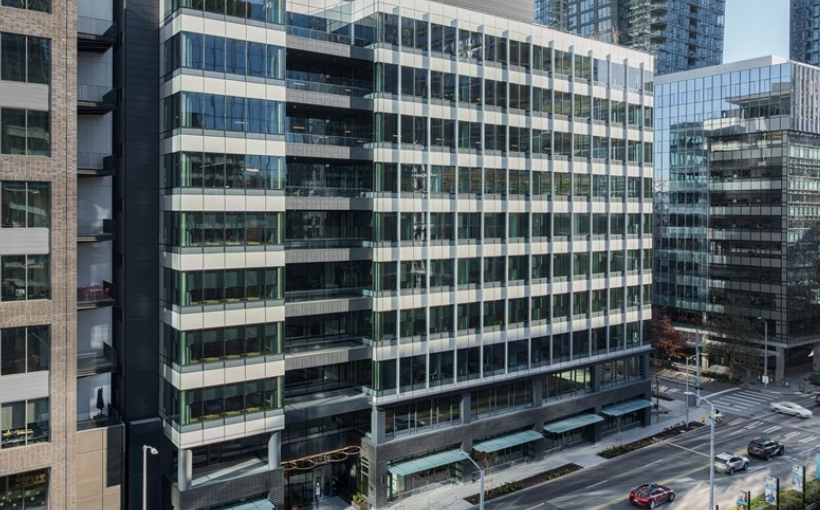**Radix’s Jay Denton Previews Market Trends Ahead of Connect Phoenix Multifamily, SFR & BTR Conference**
As we gear up for the upcoming Connect Phoenix Multifamily, SFR & BTR event scheduled for April 10 at The Westin Kierland Resort & Spa in Scottsdale, we continue our preview series with insights from key industry leaders. This week, we caught up with Jay Denton, Chief Economist at Radix, who offered a snapshot of current multifamily market dynamics and what industry professionals should keep an eye on in the months ahead.
**Multifamily Fundamentals: Reasons for Optimism Remain, Despite New Uncertainty**
Denton shared that earlier in the year, he was feeling more optimistic about multifamily fundamentals than he had in recent years. However, recent economic shifts have tempered that optimism.
“The job market is the primary driver of housing demand, and current uncertainty—especially around new tariffs—has increased the risk of a near-term recession,” Denton said.
That said, if employment numbers remain steady, he believes that multifamily operating performance could bounce back in many markets throughout 2025. In fact, during the first quarter, three-quarters of U.S. markets reported improved average annual effective rent growth compared to the previous year. Though rent growth remains negative in a few metros—Phoenix included—the overall trend has become more balanced since late 2024.
One key reason for that progress is a moderating pace of new supply. In many areas, new construction is declining back to pre-boom levels. A struggling economy could further suppress new projects, relieving pressure on current stock.
Additionally, ongoing challenges in the for-sale housing market continue to support multifamily demand. According to recent data from the National Association of Realtors, the median age of first-time homebuyers jumped to 38 in 2024, far above the historic 30–33 range. Affordability issues, high mortgage rates, and limited home inventory are pushing more consumers to remain in rental housing longer.
Still, Denton emphasized that job market performance remains the key variable to watch in 2025.
**Phoenix and the Southwest: Tailwinds and Major Opportunities**
Asked about what factors most support occupancy and rent growth in markets like Phoenix and across the Southwest, Denton highlighted long-term fundamentals.
“It all comes back to population and job growth,” he noted. “Supply will have cycles, but few places offer long-term housing demand like Phoenix and other Southwest markets.”
However, growth slowed notably across many of these high-demand regions in 2024.
**Multifamily Headwinds: Soft Job Market and Lingering Supply**
Denton pointed to BLS data showing concerning signs in Phoenix. In the second half of 2024, the metro experienced a sharp slowdown in job creation, even moving into negative territory by early 2025. As of February, Phoenix had 7,500 fewer jobs than the year prior.
These job losses are spread across numerous industries, including construction, manufacturing, retail, information, and professional and business services.
Similarly, other fast-growing metros like Atlanta, Dallas, and Austin are now posting job growth far below historical norms. Denver has seen outright annual job losses.
Meanwhile, supply overhang continues to impact occupancy and rent performance. Even with new supply easing, units delivered in recent years are still affecting the market. At present, Phoenix and other Southwest cities report below-average occupancy rates, leading to heightened rental concessions.
**What Radix Clients Want to Know**
When it comes to consultation with Radix clients, Denton says the questions vary depending on where a market stands in the recovery cycle.
“In underperforming markets, clients want to know if we’re seeing a turning point—signs of improving occupancy or rent growth. Are certain submarkets or asset types showing promise? Those were common questions a year ago, but fewer markets are struggling today.”
For regions where rent growth is hovering near 0%, the focus turns to submarket-level trends. Clients ask when they can feel confident budgeting 3% annual growth again, or when stability might return to their specific asset class or location.
Markets in the Northeast and Midwest generally recovered earlier due to fewer new deliveries, so in those areas, owners are more focused on benchmarking individual assets against local trends and meeting budgeted expectations.
**Industry Leaders Convene April 10 – Will You Be There?**
On Thursday, April 10, top developers, investors, owners, lenders, managers, brokers, and other rental housing leaders will gather for Connect Phoenix Multifamily, SFR & BTR at The Westin Kierland Resort & Spa in Scottsdale.
Don’t miss your opportunity to hear what experts like Jay Denton and other industry leaders forecast for the rest of 2025. From economic insights to market-specific strategies, this event will provide valuable knowledge to help you navigate a complex and evolving landscape.
**Connect Phoenix Multifamily, SFR & BTR**
Date: April 10, 2025
Location: The Westin Kierland Resort & Spa, Scottsdale
Stay tuned for more panelist previews as we count down to this impactful industry event.




